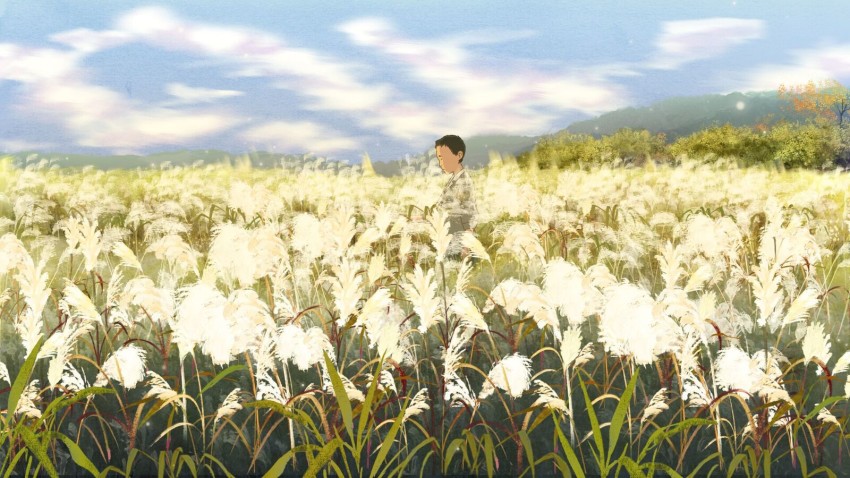The Shower
October 31, 2018 · 0 comments
By Andrew Osmond.
 The Shower is a 48-minute Korean animated film screening this coming Saturday (3rd November) as part of the London Korean Film Festival. The venue is the Phoenix Cinema at noon, and tickets are available here. It depicts an encounter between two young children, a boy and girl teetering on adolescence in a country setting that brims with potential. Yet the film will draw very different responses from different audiences.
The Shower is a 48-minute Korean animated film screening this coming Saturday (3rd November) as part of the London Korean Film Festival. The venue is the Phoenix Cinema at noon, and tickets are available here. It depicts an encounter between two young children, a boy and girl teetering on adolescence in a country setting that brims with potential. Yet the film will draw very different responses from different audiences.
Readers of this blog will be reminded strongly of classic anime; most obviously Ghibli films like My Neihgbour Totoro, but also Sunao Katabuchi’s Mai Mai Miracle and even the work of Makoto Shinkai. Korean viewers, meanwhile, will mostly sit down to the film knowing very well where the tale leads. For The Shower is based on a celebrated 1959 short story by Hwang sun-woon (1915-2000), which has long been a set book in South Korean schools. For a British equivalent, you might compare it to an adaptation of A Christmas Carol, in that everyone knows the basic journey; it’s only the details that change.
The film is framed through the eyes of a young boy in the wide countryside. He becomes idly curious about a newcomer, a girl from Seoul his age who doesn’t socialise but just lingers on her own beside a wide stream, gazing at the running water as if it’s the most fascinating thing in the world. The boy’s idle curiosity with her becomes an obsession, and leads to comic embarrassments; the early scenes may remind Miyazaki fans of Totoro and the country boy Kanta’s interactions with Satsuki. But then the girl starts to speak to him, wanting to know more about her new surroundings, and so boy and girl start roaming together.
 The Shower is a sensitive, painterly evocation of children’s life experiences. The children are often framed as small figures embedded in shining country backdrops, part of the cycle of nature. There’s a recurring visual motif of a line of stepping stones across the stream, a practical obstacle that also represents a life challenge for the boy. The youngsters’ emotions run far deeper than the inarticulate words they have to express them. Often their environment must do the speaking for them, including the summer shower of the title.
The Shower is a sensitive, painterly evocation of children’s life experiences. The children are often framed as small figures embedded in shining country backdrops, part of the cycle of nature. There’s a recurring visual motif of a line of stepping stones across the stream, a practical obstacle that also represents a life challenge for the boy. The youngsters’ emotions run far deeper than the inarticulate words they have to express them. Often their environment must do the speaking for them, including the summer shower of the title.
The film evokes “child’s time,” that early phase of life when a youngster’s consciousness of time is at its vaguest and most elastic, when there’s no clock-watching urgency (except when grown-ups bustle you along) and when a new day might have the weight of a month or a year. It’s something that Totoro and Mai Mai Miracle both aimed to convey. So does Mamoru Hosoda’s new film Mirai, framed through the eyes of a four year-old boy. As Hosoda said when we interviewed him recently: “Say when you’re a child, you can’t ride a bike but then you can. The emotional changes are just so dynamic, and so much more than for adults.” The project of conveying child’s time goes back in anime as far as Takahata’s classic Heidi in 1974.
Once you’ve seen The Shower – or if you really don’t care about fundamental spoilers – then you’re recommended to this excellent online interview with the film’s co-director, Ahn Jae-hoon. It fills out more of the film’s purpose; for example, the reasoning behind how the emotional shock of one of the characters is conveyed on screen.
Andrew Osmond is the author of 100 Animated Feature Films.
Leave a Reply